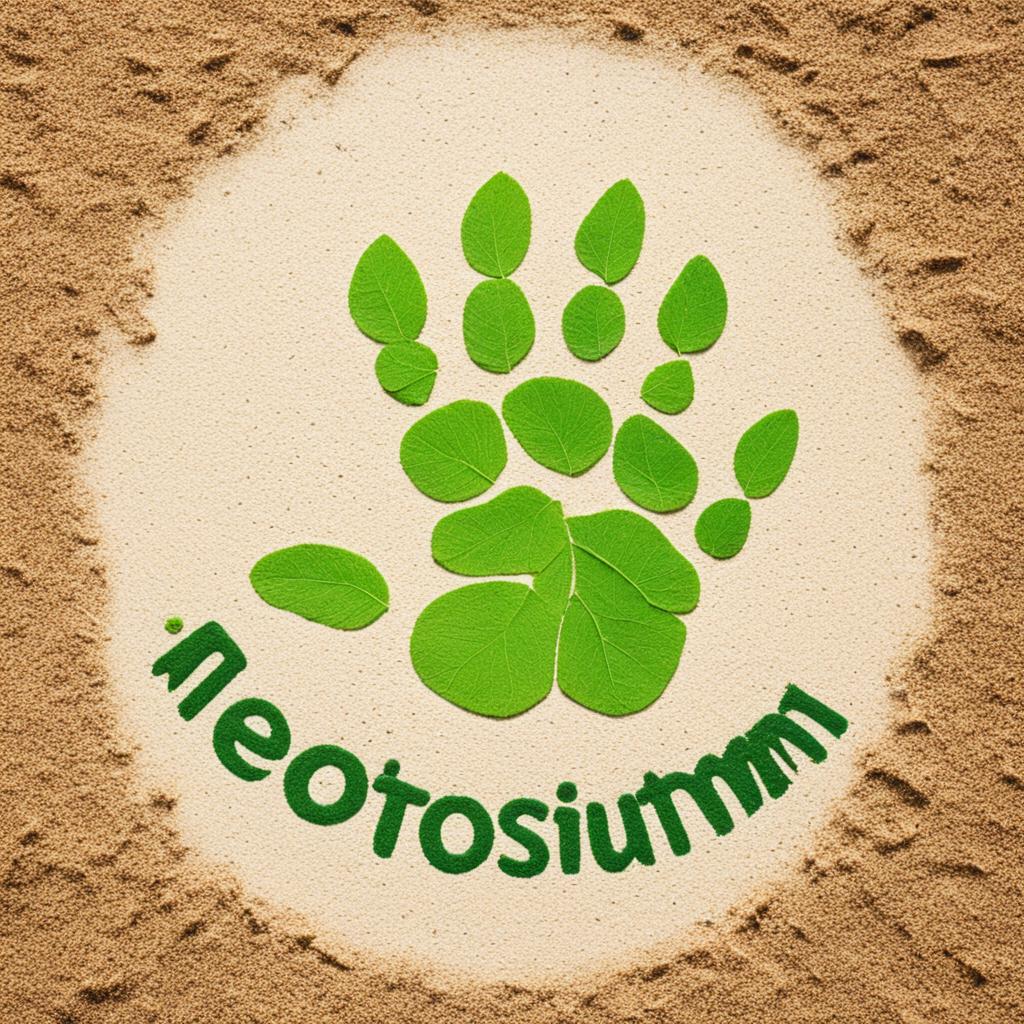Have you ever wondered what makes ecotourism different from traditional mass tourism? Is it just about enjoying nature or does it involve something more? Discover the key elements of ecotourism and how they contribute to sustainable travel, cultural respect, and conservation.
Ecotourism is a rapidly growing sector in the tourism industry that focuses on minimizing impact, promoting environmental and cultural awareness, addressing political, environmental, and social issues, benefiting conservation efforts, and providing financial benefits for local communities. Let’s explore each of these elements in more detail and understand their significance in shaping the future of travel.
Minimize Impact

One of the key elements of ecotourism is minimizing impact. To ensure the sustainability of tourism practices, it is important to measure and reduce the carbon footprint associated with tourism companies and specific trips. By implementing eco-friendly measures, such as using renewable energy sources and promoting energy conservation, the environmental impact of tourism can be minimized.
In the United States, the National Forest Service and National Park Service have adopted the “Leave No Trace” policy to further minimize impact on public lands. This policy promotes responsible land and resource usage, encouraging visitors to leave the natural environment undisturbed and preserve its pristine beauty for future generations. By adhering to the principles of the Leave No Trace policy, tourists can enjoy the beauty of nature while minimizing their impact on the environment.
Minimize Impact: Reducing our carbon footprint and following the Leave No Trace policy
Environmental and Cultural Awareness
Ecotourism plays a significant role in promoting environmental and cultural awareness among tourists. It emphasizes the importance of understanding and respecting the values, traditions, customs, and norms of different cultures. By fostering this awareness, ecotourism ensures that tourism has a positive impact on local populations while preserving the integrity of their cultural heritage.
When practicing ecotourism, it is crucial to be environmentally conscious and minimize the negative impact on the environment. This involves adopting sustainable practices, such as reducing waste, conserving energy and water, and supporting local conservation efforts. By raising environmental awareness, ecotourism encourages visitors to appreciate the natural beauty of their surroundings and take active steps towards its preservation.
Cultural awareness goes hand in hand with environmental awareness in the realm of ecotourism. It involves recognizing and respecting the cultural diversity of host communities. This means appreciating their traditions, festivals, and ways of life, and avoiding behavior that may offend or disrupt the local culture. By showing respect towards cultural differences, ecotourists contribute to the preservation and celebration of diverse cultural heritage.
Through environmental and cultural awareness, ecotourism seeks to foster a sense of responsibility and respect towards both nature and local communities. By embracing these principles, tourists can actively contribute to the conservation of the environment and the preservation of cultural traditions.
| Environmental Awareness | Cultural Awareness | Respect | |
|---|---|---|---|
| Definition | Awareness of the impact of human activities on the environment and the need for conservation | Understanding and appreciation of different cultures and their heritage | Showing consideration, honor, and regard for the values and customs of others |
| Importance for Ecotourism | Minimizes the negative impact on the environment | Preserves the cultural heritage of local communities | Ensures positive interactions and harmonious coexistence |
| Benefits | Promotes conservation efforts and sustainable practices | Fosters cross-cultural understanding and appreciation | Builds positive relationships and goodwill |
Political, Environmental, and Social Climate

Ecotourism plays a crucial role in fostering an understanding of the political, environmental, and social issues of the host country or locality. It goes beyond surface-level interpretations and encourages visitors to learn the story behind different perspectives. By acknowledging and respecting the diversity of viewpoints, ecotourism promotes respectful dialogue and aims to foster an appreciation for the political, environmental, and social landscape of different places around the world.
When you engage in ecotourism, you have an opportunity to explore and understand the political climate of the destination. By learning about the political system, policies, and governance, you gain a deeper understanding of the challenges and opportunities faced by the local community. This knowledge allows you to appreciate the social dynamics and factors that shape the destination’s political landscape.
Furthermore, ecotourism encourages a focus on environmental issues. It prompts tourists to consider the environmental impact of their actions and to explore ways to minimize their ecological footprint. By immersing yourself in the natural beauty of the destination, you become aware of the environmental challenges it faces, such as habitat destruction, pollution, or climate change.
In addition to political and environmental awareness, ecotourism also prompts an understanding of social issues. You have the opportunity to learn about the local culture, traditions, and customs, enabling you to engage with local communities in a meaningful way. This cultural exchange fosters mutual respect and empathy while creating opportunities for economic empowerment and social development.
Ultimately, ecotourism aims to create a positive impact by addressing political, environmental, and social issues. It encourages visitors to become ambassadors for change, spreading awareness about the challenges faced by the destination and supporting local initiatives for sustainable development.
| Benefits of Understanding Political, Environmental, and Social Climate | |
|---|---|
| 1. Increased cultural empathy and appreciation. | |
| 2. Awareness of environmental challenges and opportunities for conservation. | |
| 3. Support for local communities and initiatives for sustainable development. | |
| 4. Promotion of respectful dialogue and understanding across diverse perspectives. | |
| 5. Opportunities for personal growth and a deeper connection to the destination. |
Benefits for Conservation

Ecotourism plays a crucial role in promoting conservation and preserving the environment. It recognizes the importance of protecting and sustaining the natural beauty and ecology of the areas affected by tourism. By channeling financial benefits from tourism into conservation efforts, ecotourism ensures the long-term preservation of fragile ecosystems and the diverse flora and fauna they support.
Preservation is at the heart of ecotourism, as it seeks to resist continuous development and sprawl that can harm the environment. Instead, it encourages limits on development in areas that attract tourists, allowing these places to retain their natural allure and protecting them from overexploitation.
| Financial Benefits for Conservation | Impact on Preservation Efforts |
|---|---|
|
|
Provide Financial Benefits for Locals
When it comes to ecotourism, it’s not just about preserving the environment and promoting sustainable living. It’s also about providing financial benefits to the local communities. By empowering and involving the everyday people in the area, we can ensure that the economic advantages of ecotourism reach those who need it the most. This not only creates opportunities for the locals but also encourages a sustainable way of life that strengthens the protection of the natural environment.
When tourists visit ecotourism destinations, they should contribute to the well-being of the local communities. This can be achieved by supporting local businesses, staying in locally-owned accommodations, and purchasing local products and services. By doing so, tourists directly contribute to the financial growth of the community and help create more job opportunities.
Benefits of Providing Financial Assistance to Local Communities
- Enhanced quality of life for locals
- Reduction in poverty and income inequality
- Increased investment in education and healthcare
- Preservation of local culture and traditions
- Empowerment of marginalized communities
By supporting the communities financially, ecotourism helps to improve livelihoods, boost local economies, and promote sustainable development. It creates a mutually beneficial relationship between tourists and locals, with both parties gaining from the experience.
| Financial Benefits for Locals | Sustainable Living |
|---|---|
| 1. Increased income opportunities | 1. Conservation of natural resources |
| 2. Job creation | 2. Reduced ecological footprint |
| 3. Improved infrastructure and services | 3. Preservation of local culture and heritage |
| 4. Skills development and capacity building | 4. Community empowerment |
| 5. Enhanced education and healthcare | 5. Social cohesion and inclusivity |
Statistics on Tourism
Tourism plays a crucial role in shaping the economies of developing countries, serving as the top export for 83 percent of these nations. Furthermore, it serves as the primary source of foreign exchange, second only to oil. These statistics highlight the immense economic significance of tourism, particularly in economically vulnerable regions.
By focusing on ecotourism, this sector of the tourism industry has the potential to contribute significantly to the economic growth of developing countries. Not only does ecotourism generate revenue, but it also promotes sustainable practices and conservation efforts, creating a positive impact on both the environment and the local communities.
Through ecotourism, developing countries can leverage their natural resources, cultural heritage, and unique landscapes to attract responsible travelers who deeply value sustainability and environmental consciousness. By providing authentic experiences that prioritize the protection of the environment and the well-being of local communities, ecotourism offers a win-win situation where both tourists and locals benefit.


